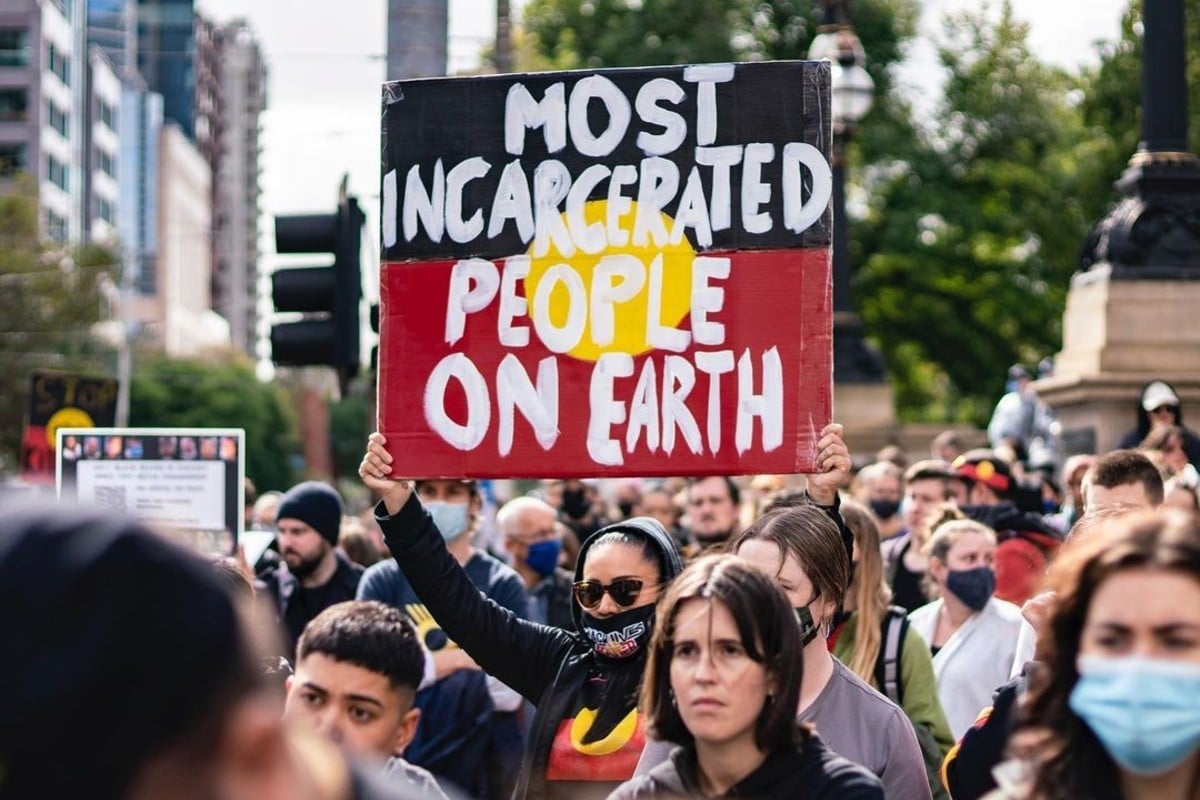
Since the Royal Commission was released in 1991, there have been approximately 500 Indigenous deaths in custody. To this day, no one has been held accountable. Families have been left without closure or justice; and the unexplained losses a stark and harrowing reminder of the systemic and continued violence perpetuated towards our Indigenous community. In all aspects, this mistreatment is a violation of human rights; an unending narrative that is being explored in the upcoming SBS documentary, Incarceration Nation .
The new documentary from Guugu Yimithirr man, Dean Gibson, is an uncomfortable but necessary dissection of the incarceration and policing of First Nations people; unpacking the reality behind why so many Indigenous men, women and children are behind bars.
Presently, First Nations people make up 3.3% of Australia’s population; yet 65% of children incarcerated (at the time this article was written) between the ages of 10 and 13 are Indigenous. Further, Aboriginal men make up 25% of the male prison population; and Aboriginal women comprise 34% of woman in prison – becoming the fastest growing prison population.
Incarceration Nation isn't only here to present the facts. The documentary weaves in intimate testimonies from Indigenous inmates, survivors of police brutality, and heartbreaking and emotional interviews with their loved ones who continue to fight for accountability and justice.
Among these powerful testimonies includes important conversations with previously imprisoned Keenan Mundine and Carly Stanley, deadly Blak academics, activists and experts; such as Australia’s Human Rights Commissioner from 2009 — 2016 Mick Gooda, and associate professor Chelsea Watego.
The documentary will also share graphic footage of some of the horrific mistreatment, violence and police brutality that Indigenous people have suffered at the hands of the state. It does not 'tip toe' around the systemic issue; nor does it conceal the reality of what has continued to occur since the beginning of colonisation. Not a moment is missed; with Gibson outlining a timeline of events and policies throughout the documentary that bring us to the injustice that remains today.
Incarceration Nation is available to stream now on SBS On Demand. The documentary is vital viewing in furthering our understanding of the importance of allyship and how we can better support our Indigenous communities. If it makes you uncomfortable, it should.
Wanting to learn more about performative allyship and how to be a better ally? Here is a list of books about race as compiled by the RUSSH community.
A warning that Incarceration Nation contains images of those who have passed away, as well as graphic footage of police brutality and murders in custody, as well as accounts of sexual assault.
Image: Instagram



